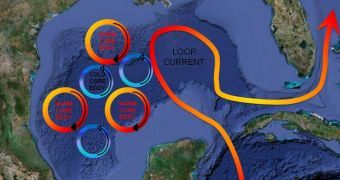Since April 20, thousands of barrels of crude oil have been leaking into the waters of the Gulf of Mexico. The oil slick has extended considerably in the month that passed, and threatens delicate coastal areas. Some say underwater plumes may have entered the Loop Current, which is a deep-ocean current that heads east, towards Florida, and then even further, into the Gulf Stream. While this is an enormous natural disaster, the US National Science Foundation (NSF) recognized the importance of studying the spill, and awarded a Quick Response grant to researchers, for studying the way dispersant chemicals influence oil degradation in the waters.
The money was awarded to a group of scientists based at the University of California in Santa Barbara (UCSB), who are led by expert David Valentine. The funds were awarded because the NSF wanted to learn more about how dispersant chemicals affected the slick. Given the proximity of the oil slicks to important shorelines, and the amount of oil being spilled into the water, American authorities and representatives from oil company British Petroleum intervened with massive amounts of dispersant, a series of the chemicals that also include surfactant compounds.
“Dispersants are being sprayed aerially and added at the sea-floor, and the total usage is likely to exceed one million gallons before this is over,” the team leader says. “This research will use a combination of chemical and biological tools to track changes in the composition of the oil, changes in the microbes in the Gulf, and changes in the amount of surfactant present, to determine the impact of these dispersants on oil biodegradation,” explains the NSF Division of Ocean Sciences program director, Don Rice. The DOS funded the new grant.
“We're researching this real-world spill, by simultaneously investigating oil composition, the microbes, and the dispersants. We think the dispersants may impact the microbes through interference with the action of their natural dispersants,” Valentine adds. Most of the studies will be conducted in areas adjacent to the spot where the Deepwater Horizon drilling rig sunk on April 22, claiming eleven human lives. Since that time, efforts have been underway to plug the wellheads that leak oil into the Gulf, but most of these initiatives hacve thus far failed.

 14 DAY TRIAL //
14 DAY TRIAL //